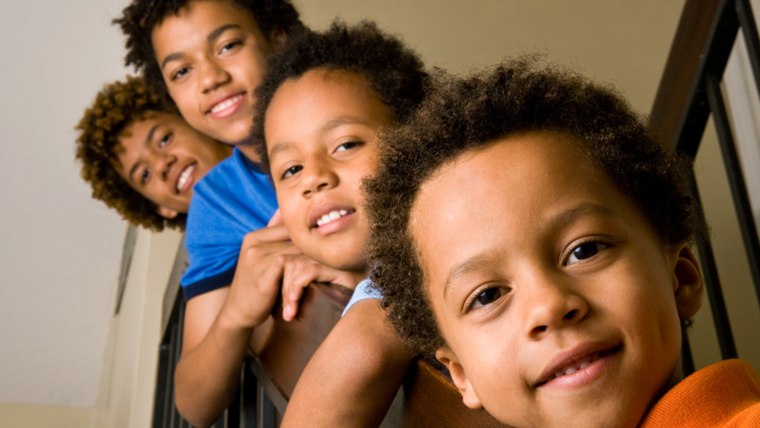Happy Siblings Day!
Conventional wisdom — and a lot of research — has suggested that birth order makes an indelible mark on our personalities, with firstborns thought to be more ambitious, the youngest children more rebellious and the middle children resentful of all the attention their siblings have gotten.

A 2015 study found none of that to be true. While there may be a small intellectual and IQ advantage among firstborns, that may simply be due to the amount of parental attention firstborns get, says study coauthor Stefan Schmukle, a professor at the University of Leipzig.
“The first born gets the most intellectual stimulation and the later ones get less,” Schmukle says.
As for the effects on personality, while they may exist in children, the impact of birth order seems to fade with age, Schmukle says.
Schmukle and his colleagues pored over data from three large surveys, one from Great Britain, one from the United States and one from Germany. All told, data from more than 20,000 adults were included in their analysis.
Birth order had virtually no impact on what are known as the “big five” personality traits: extroversion, emotional stability, conscientiousness, agreeableness and openness to experience, the last of which can be broken down into intellect and imagination.
The German research backs up the findings of a recent large study of American high school students —which found only a very small birth-order effect — but it may not be the end of science's fascination with birth order and personality.
It’s possible that birth order effects were missed because the researchers were using very broad categories, says Frank Sulloway, an adjunct professor at the University of California, Berkeley.
“The birth order effects on personality may be canceling themselves out at the collective trait level,” Sulloway explains. “For example, firstborns are expected to be more assertive (an aspect of extroversion) but laterborns are expected to be more fun-loving and sociable, but not more talkative.” So, Sulloway contends, if a person is high in assertiveness, but low in sociability, then those two aspects of the extroversion trait will cancel one another out.”
Birth order is simply a proxy for patterns of family dynamics, Sulloway says, “which is what we really want to understand.”
RELATED: Firstborn girl? Scientists find an unexpected disadvantage
“Firstborns, for example, tend to exert their power by acting as surrogate parents,” he says. “Surrogate parenting is expected to make firstborns more bossy, and hence, low in agreeableness, but more caring and concerned with the welfare of their younger siblings, so high in agreeableness.”
Victoria Marini, whose own research has found that birth order has little impact on personality explained the persistence of the conventional wisdom as "confirmation bias," a phenomenon where we consider findings that confirm what we believe as true and dismiss information as false if it is contrary to our beliefs.
“I think we all know people who fit into the birth order stereotypes,” she says. “And generalizations we make when we see those with ‘middle child syndrome’ or interact with the ‘baby of the family’ will continue to based on experiences we have with people who fit those stereotypes."
The bottom line is, even if people behave a certain way in the family they grew up with, that doesn’t mean those birth order effects will carry over into their relationships with others, says April Bleske-Rechek, a professor of psychology at the University of Wisconsin, Eau Claire.
This story was originally published in October 2015.